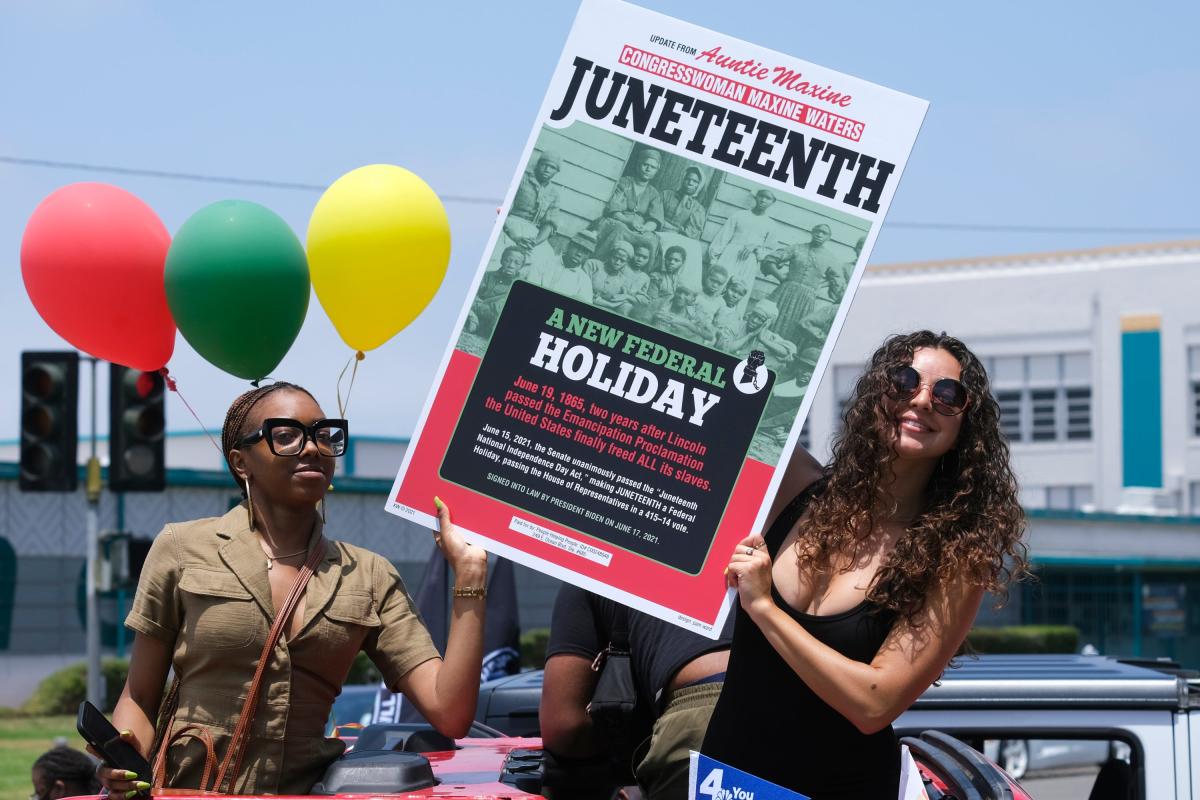This Monday is Juneteenth, which marks the third anniversary of the federal recognition of the holiday that commemorates the end of slavery in Confederate states.
While President Biden formally recognized Juneteenth as a federal holiday, this doesn’t guarantee a day of paid time off for everyone.
This year, 28 states will legally recognize Juneteenth as a public holiday, according to the Pew Research Center. This means state works will have a paid day off.
By the time President Biden declared Juneteenth a federal holiday, almost all states had voted independently to commemorate Juneteenth as a day of observance. As compared to public holidays, in which all state employees have the day off and banks close, days of observance like Earth Day or Flag Day are recognized but not given off.
See more below about when states first recognized the holiday.
When did states commemorate Juneteenth?
Is Juneteenth a state holiday? Here’s where it’s officially recognized
The governors of West Virginia and Alabama have authorized Juneteenth as a state holiday through proclamation, but it will not be considered a permanent holiday unless state legislatures pass bills into law.
California allows state employees to take off on Juneteenth in lieu of receiving a personal holiday.
In Pennsylvania, employees under the governor’s jurisdiction can take a paid day off, and in North Carolina, employees can take floating holiday on a day of “cultural, religious or personal significance,” according to the Pew Research Center.
What was the first state to recognize Juneteenth?
On June 19, 1865, Maj. Gen. Gordon Granger informed a reluctant community in Galveston, Texas, that President Abraham Lincoln had freed enslaved people in rebel states two and a half years earlier. He pressed locals to comply with the directive.
Although Lincoln proclaimed the emancipation of enslaved people, effective Jan. 1, 1863, enslavers were responsible for telling them that they were free, and some ignored the order until Union troops arrived to enforce it, according to Cliff Robinson, founder of Juneteenth.com. Texas was the last Confederate state to have the proclamation announced.
The first Juneteenth celebration, held in the state’s capital in 1867, was led by Freedmen’s Bureau. It became part of the calendar of public events by 1872, according to the Texas State Historical Association.
Texas then became the first state to recognize Juneteenth as a state holiday in 1980. Introduced by Houston Democrat Al Edwards, the state legislature passed the act in 1979. Governor William P. Clements, Jr. signed into law in 1980.
Explained: Gov. Ron DeSantis’ feud with the College Board over AP African American Studies
Celebrating history in the face of repression in schools
The national Juneteenth holiday coincided with a conservative push to limit education about race and Black history. No existing state laws explicitly prohibit the teaching about or celebrating Juneteenth in K-12 education. But laws restricting classroom content are widespread. Education Week reports 18 states have laws limiting how teachers can discuss race and racism in classrooms.
Though the holiday occurs in the summer break for the majority of school districts, some strive to provide resources or lessons for the community, such the Chicago Public School system, which tweeted out a list of Juneteenth celebrations across the city for families or the Willingboro Township school district, in New Jersey, which hosts a district-wide arts performance.
Contributing: N’dea Yancey-Bragg, USA TODAY
This article originally appeared on USA TODAY: Is Juneteenth a federal holiday? Is it a state holiday? What to know






